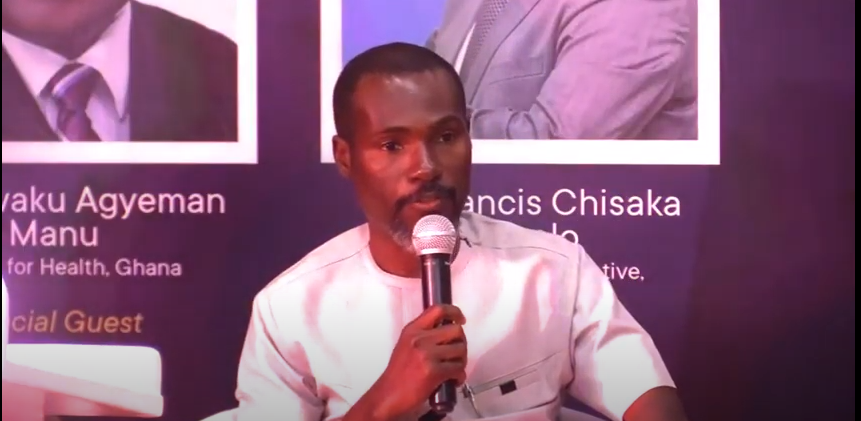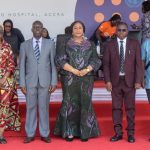Head of Monitoring and Evaluation at the Ministry of Health, Dr. Eric Nsiah Boateng has revealed that the ministry is working on setting up an emergency fund the country can fall on in times of health emergencies.
Speaking at the University of Ghana School of Public Health’s Quarterly Seminar Series on The State of the Nation’s Health, Dr. Eric Nsiah said the ministry failed to establish the fund last year, however they are hoping to do that coming months .
In the last medium term planning we capture that, between the 2018 and 2021 unfortunately we couldn’t establish that and I think when covid came it became more prominent for a discussion for us to do that, and I remember the last 2 year, a health summit it was one of the topics we discussed so we believe, going forward we will be able to do it. following from what parliament has done, by passing the covid 19 recovery levy, the discussion we have now as I mentioned earlier in my submission how do we turn public health fund, to address clinical and public health emergency, that will go beyond the pandemic and all those things to include the National ambulance, and national blood service.
I’m sure we have all experience challenges when accessing service from these institution, so it is something we believe that discussion are ongoing and finally we will get it established.
Meanwhile Health Systems and Policy analyst Dr. Koku Awoonor Williams said the fund needs a lot more fragmentations and consultations before it is set up.
I keep thinking why all of a sudden why an emergency public health fund, where I don’t clearly see the structure to that, in terms of how it is going to be managed, we have a lot of fragmentation, we have pockets of power and politics around
One of the lessons from Kenya, of course of the emergency teach us ways to respond, structure and be more effective.
What Kenya did as a result of the covid and all the money they got from partners and all and all was to restructure and create a national institute of public health that becomes a fulcrum of all ,not okay Noguchi is there, what are the doing, KCR is there, Ghana health service is what are they doing, so I’m just beginning to think how are they going to rationalise that kind of, there are a lot of plans that we need to put in place to make this work.
Health Economist and Associate Professor at the University of Ghana School of Public Health, Professor Patricia Akweonogo urged the ministry of health and stakeholders to ensure they implement the policy. She says she hopes its not a mere hear say.
I think most often when you want government to really get committed we need to have an advocacy planning, have solution we should put forward so if there are leakages and we realize that Ghana can actually support most of the programmes we are searching peanut for. What are the sources of the evidence of leakages, what are the solution we can put forward, and how can we constantly advocate.
Sometimes the Ghanaian style is when we talk about something, today tomorrow, but the third day we have put it aside, and we are on something else but for the politicians to really wake up and respond ,most often we need to constantly advocate and make sure we have the solutions and once we have the solution and constantly talk about it then we can push them to get committed.
A Health emergency health fund will help Ghana to respond rapidly to disease outbreaks. This will save lives and help prevent suffering. The quick response reduces costs of controlling outbreaks and emergencies, as well as wider social and economic impacts.
The University of Ghana School of Public Health has instituted a Quarterly Seminar Series on The State of the Nation’s Health to serve as a platform for highlighting and discussing key challenges facing Ghana’s health sector, and identifying pragmatic approaches to addressing those challenges.
The Roundtable aims to bring together experts and policy makers/ implementers from academia, World Health Organisation , Ministry of Health, research institutions, government and non-governmental organizations, UN agencies etc to explore the opportunities that the COVID-19 pandemic has provided to discuss sustainable approaches to financing public health emergencies in Ghana.
The last time this event was held was Monday, November 14, 2022.





